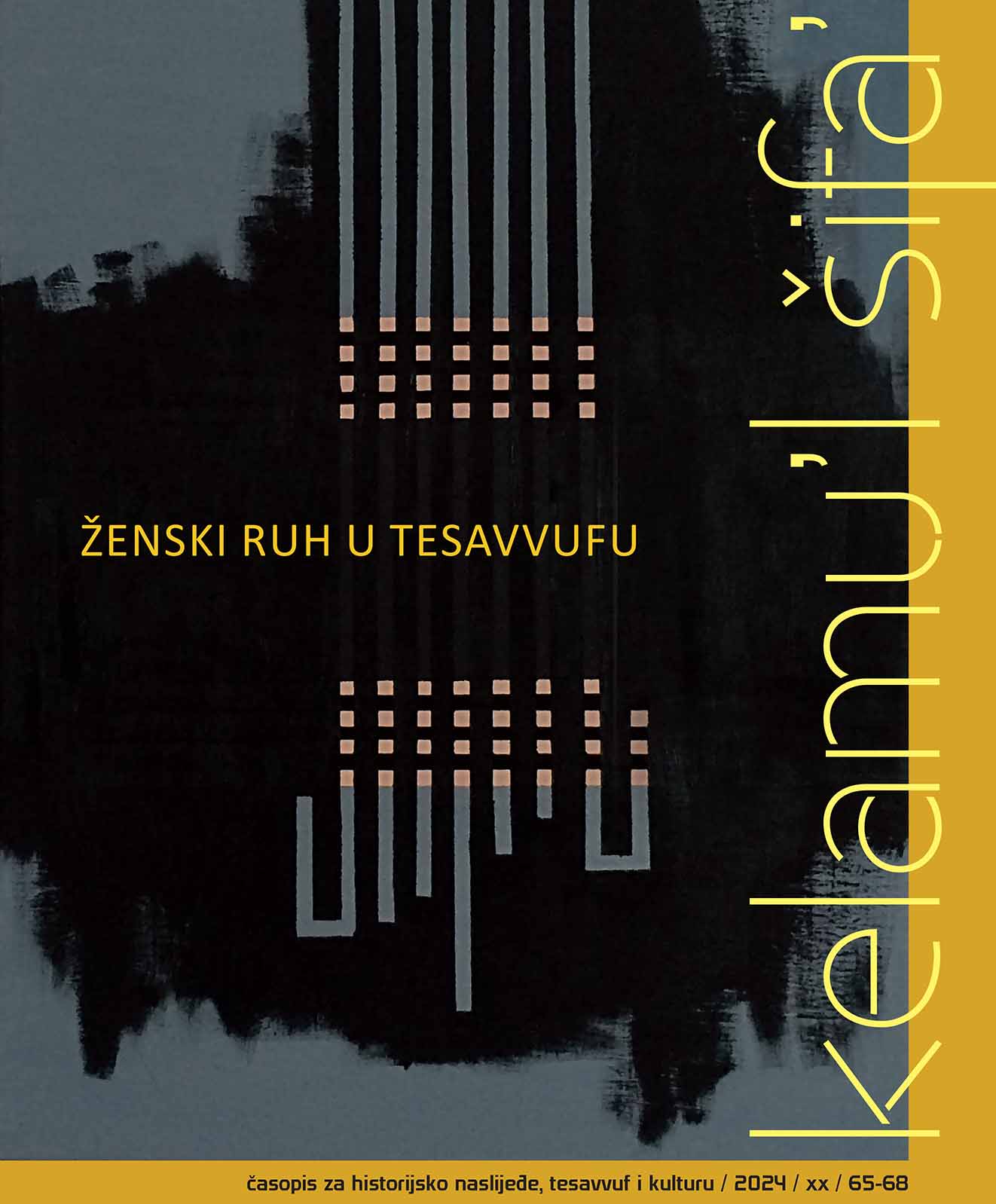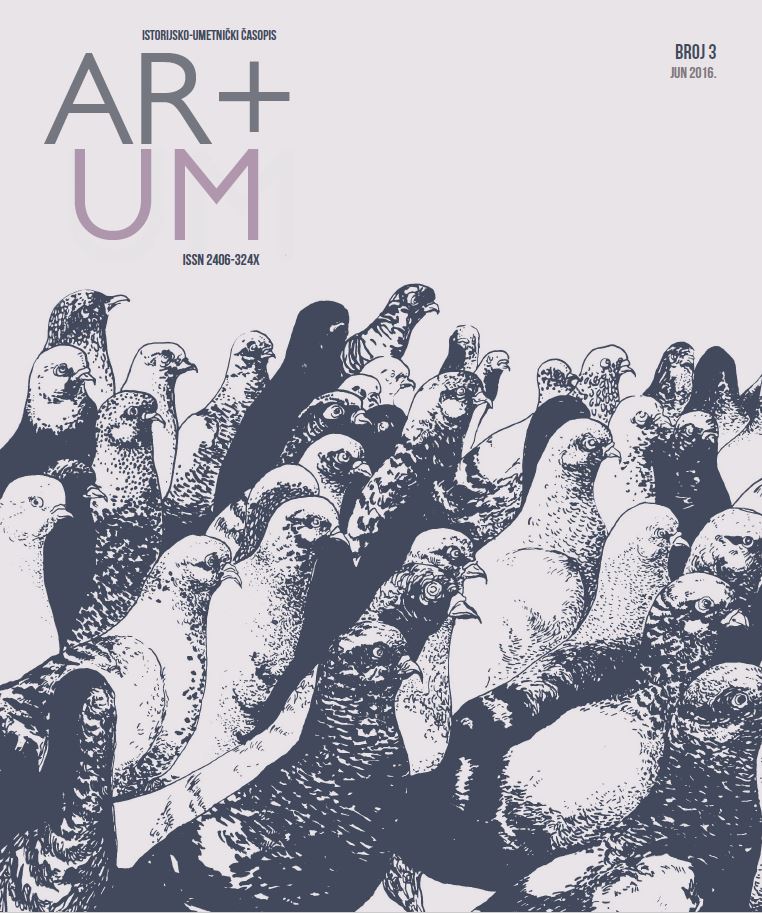
We kindly inform you that, as long as the subject affiliation of our 300.000+ articles is in progress, you might get unsufficient or no results on your third level or second level search. In this case, please broaden your search criteria.

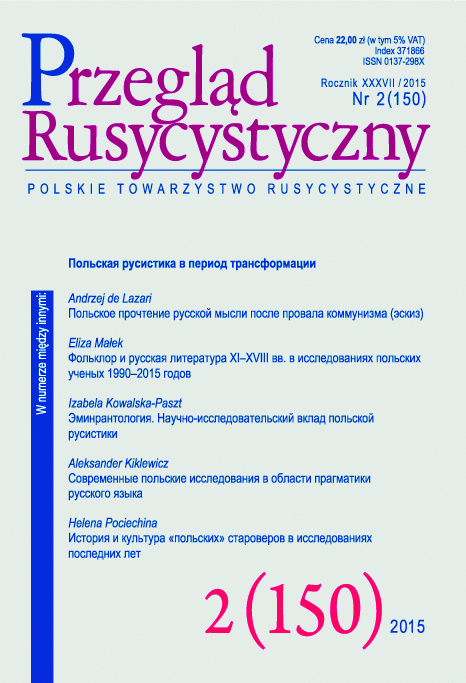
Based on the literary and cultural material, the article discusses two functions played by the term of emigrantology as a legacy of three waves of Russian emigration in the 20th century. The term was introduced by Lucjan Suchanek to the research space of Slavic emigration. It has systematized the area of intellectual and scientific self-reflection (including literary studies, historiography, philosophy and theology, and cultural studies), which developed in the community of Russian emigration. Additionally, the term provides modelling of the need for interdisciplinary and in the nearest future trans-disciplinary studies on the complex cultural phenomenon of Slavic emigrations. In this particular context, the article presents major research directions and achievements of Russian studies in Poland.
More...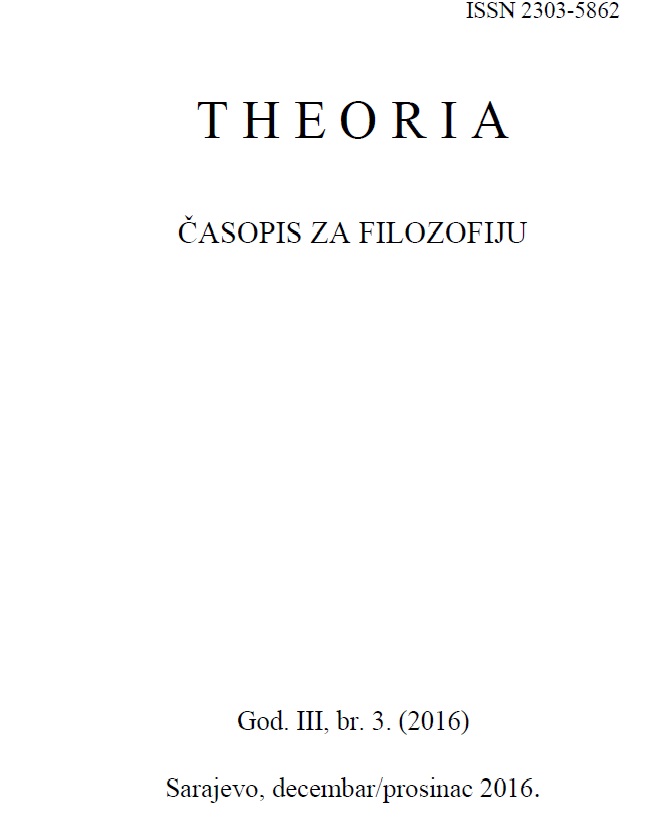
This paper studies the cultural, in this case literary (prose),communication between writers-representatives of different nations. After the determination of the term interculturality and function of culture in slowing the stigma, ghettoisation, passes to the analysis of literary and social activities of two writers,members of the same minority in Serbia - Laslо Vegеl and Laslo Blašković. In the case of different strategies (writing in their native or second language, orientation towards his national community, the relationship to the majority, according to a former state – Yugoslavia – and present, Serbia, treatment of political issues, etc.) Establishes their relationship to their own entity stronghold and possibilities of overcoming its possible oppression (the term Gayatri Chakravorty Spivak) or oppressiveness (termed Susan Stanford Friedman).
More...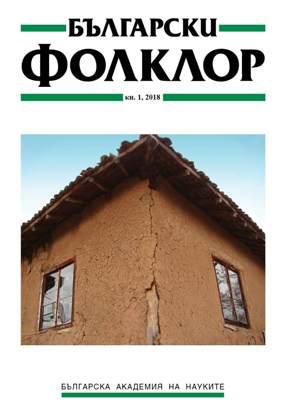
Anniversary; Scientific Life; Scholarly Conference
More...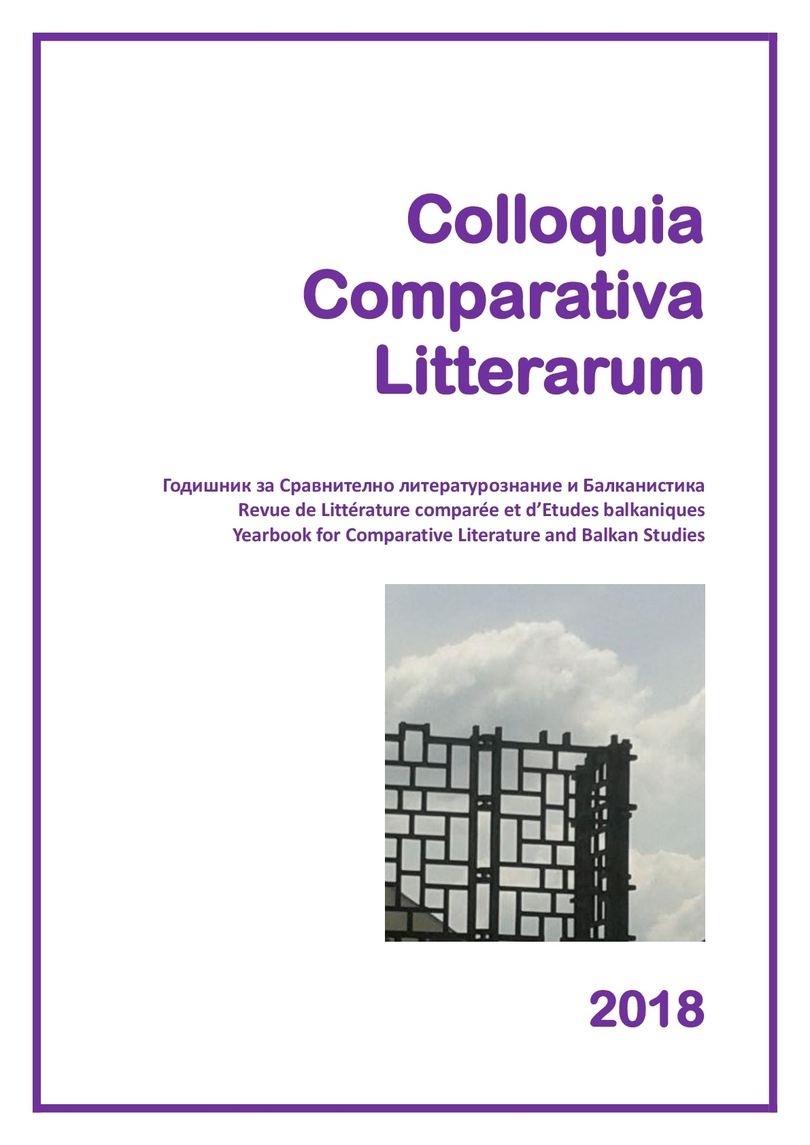
The Home of Literature is a metaphor of the literature and literary community. However, this metaphor is connected with the home obsession in contemporary post-Yugoslavian literatures. After the collapse of the Former Yugoslavia and Bosnian war, the home is one of the constant themes in contemporary literature in all area. We can see that in the poetry of the Bosnian-Slovenian poet Josip Osti, but also in the novels and essays of the famous emigrant writer Dubravka Ugrešić, as well as in the works of Peter Semolič, Miljenko Jergović, Vida Ognjenović, Jasna Koteska etc. The home is often present even in the titles of their works (House of Language by Osti, House of Words by Semolič, The House of Dead Scents by Ognjenović), and what is more important – the home is a counterpart of the literature as a place of the sense in the world that every day loses a part of its sense and good taste. The literary home is not a utopian place, because it is a collective image and it could be the dystopian place as well. We mark that through the works about the prison and concentration camps – The Damned Yard by Ivo Andrić, the novels and stories by Danilo Kiš, Dragoslav Mihailović, Branko Hofman, Miroslav Popović etc. At all events, the literary home is always a place of the reinventing of the sense.
More...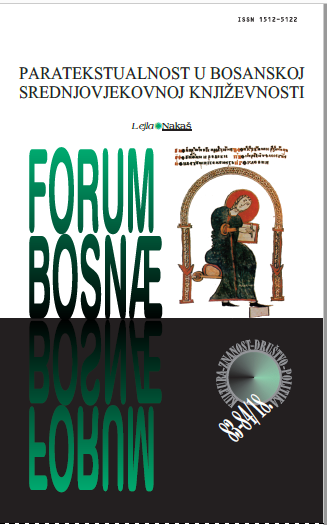
Na odabir termina paratekst, kojim je moguće definirati specijalne žanrove u srednjovjekovnoj književnosti, filolozi su potaknuti definicijama i interpretacijama iz teorije književne kritike do kojih je došao Gérard Genette. Paratekstualnost je odnos između teksta i njegovog parateksta, koji okružuje glavni tekst, kao što su naslovi poglavlja, predgovor, uvod, pogovor, sažetak, napomene, ilustracije, sve što je pored teksta, s osnovnom svrhom da poboljša i prilagodi njegovu recepciju. U srednjovjekovnoj su rukopisnoj tradiciji naslovi poglavlja ili glave (capita), koje nose glavno (kapitalno) značenje sadržaja pripovijesti, potom popratni tekstovi u rukopisnoj tradiciji četveroevanđelja poznatoj kao sinopsis i hipotezis tipično paratekstualne prirode, a takvim se može smatrati i aparat koji je specijalno osmišljen za sinoptičko čitanje teksta četiriju evanđelja, naime Euzebijevi kanoni na hotizontalnim marginama. U Mletačkom i Hvalovom zborniku ta se pravila nalaze na istaknutom mjestu, na početku knjige a popraćena su tradicionalnim tekstom, Euzebijevom poslanicom Ciprijanu, u kojoj je objašnjena njihova svrhovitost. Riječ je o podjeli teksta četveroevanđelja na takav način koji omogućava usporedbu odlomaka u kojima su “evanđelisti jedno rekli.” Osim svih tih formalno uočljivih uputa redaktora oko, ispred, iza i iznad samoga glavnog teksta, kao paratekst se tumače načelno i svi parabiblijski tesktovi, koji se u odnosu na kanonski tekst mogu smatrati periferijskim tekstovima. Tekstovi ove vrste širili su se uglavnom sekularnim putevima i sačuvani su u zbornicima apokrifne literature. Nešto su rjeđi slučajevi kada oni ulaze u sastav kodeksa s primarno kanonskim sadržajem. Većina ih je prevedena u Preslavu u razdoblju od kraja 9. i početka 10. stoljeća. Obilježeni su intertekstualnošću, koja uključuje citiranje, reminiscencije i aluzije na kanonski tekst. Priređivači tih tekstova uživali su veću slobodu pri prepisivanju nego što je to slučaj s prepisivanjem kanonskih tekstova. Dijalektalne odlike lakše su prolazile u te tekstove, pa oni imaju poseban značaj i sa stanovišta historije jezika.
More...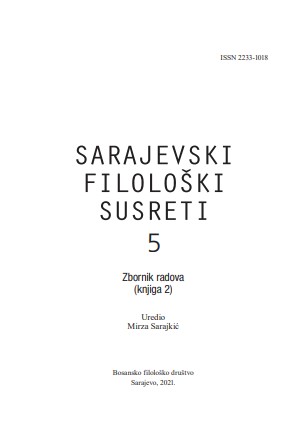
As the fundamental text for the study of artistic and literary avantgardes, Bürger’s Theory of the Avant-garde has been the subject of a wide and diverse critical reception. An especially contentious claim of Bürger’s is the one about the failure of neo-avant-garde art – a claim that cannot be separated from of his category of historical avant-gardes and the claim about the defeat of the pre-war avant-garde movements. Missing the construction of Bürger’s argumentation, different critics have pointed to different post-war artists and artistic movements which, through their work, revitalized avant-garde poetics with more or less success. However, by staying in the same framework of the Euroamerican capitalist West and its artistic system, these counterexamples could not offer a systemic intervention into Bürger’s theory. Due to its specific historical, social, and therefore cultural and artistic trajectory, the experience of Yugoslavia represents one of the possible points of departure for such an intervention. By focusing on existing interpretations of the relation between the Yugoslav avant-garde, neo-avant-garde and post-avant-garde, this article aims to show how the unique relation of the post-war avant-garde towards its tradition can contribute to the critical supplementation of Bürger’s theory and a more nuanced understanding of the possible relations between the neo-avantgarde and the avant-garde. In that sense, this article will try to show how the Yugoslav example is indispensable to a relevant discussion of artistic avantgardes in general.
More...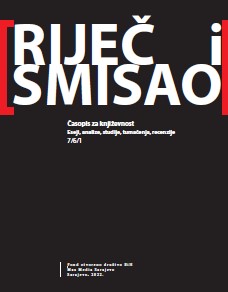
The aim of the paper is to present the subversive role of literature on the example of the Feral Tribune magazine and library. The analysis begins by listing the types of repressive measures the magazine was dealing with in the time of SFRJ and independent state of Croatia which ultimately led to the cancellation of the magazine in 2008. Following the literary procedures in the published texts, the interpretation deals with forms and contexts of literature which are deemed as subversive in the Feral. As examples of the most important art forms in the Feral, the author singles out the columns Bilježnica Robija K. and Greatest shits, shorthand forms of burlesque comedy, provocative aphorisms and travestied forms of poems published in the magazine. Additionally, the paper is also looking into the method in which the publishing venture of the Feral Tribune library subversively influences the social and cultural atmosphere of Croatia and its vicinity. The criteria of the book selection for the library itself and the manner in which the literary discourse of the chosen works was undermining nationalist and clero‑fascist metanarratives are further explained in the final part of the paper.
More...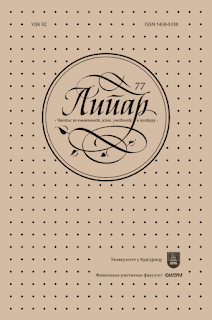
In this paper, the presence of the motif of rebellion is analyzed on the basis of two prose works: Davoka’s story of Jahijel’s rebellion (1953) and The story of the farmer Siman (1969). We establish a connection between the two main charac- ters, Samokovlija’s Jahijel and Andrić’s Siman, to distinguish between two forms of resistance. Jahijel’s rebellion is an ordinary, human revolt, whereas Siman’s is a revolutionary one; Jahijel opposes Jewish customs and tradition, while Siman opposes authority and government. Although the reasons and results of their op- position are different, both are fighting against ingrained social principles that don’t allow a marginalized individual to progress and free himself
More...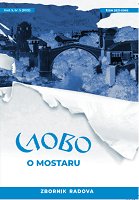
Hasan Nametak was one of the most important leaders in the ield of collecting and describing Bosniak cultural and literary heritage from the end of the 19th century. He made a special contribution in the ield of folklore by collecting a collection of poems of Croatian folk songs and several legends, anecdotes and humorous stories that he published in the then Bosnian periodicals. As a narrator, but also a witness of the time, he wrote several autobiographical sketches and pictures about the events in Herzegovina after the arrival of the Austro-Hungarian Monarchy in Bosnia. He also made a signiicant contribution to the memory of prominent Bosniak scholars of the late 19th and early 20th centuries. He also wrote several texts about prominent Mostar’s vakufs (endowment) and their vakifs (founder).
More...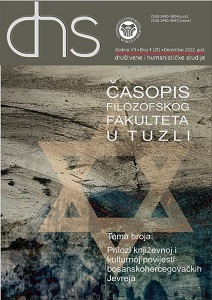
The Jewish cultural tradition, which within the framework of the Bosnian habitus went through stages - from assimilation, concretization, activation, and even fusion - represents a paradigm of intracultural processes in the complex Bosnian society. These processes take place through various interactions, which have not been bypassed by local literature, and are representative of one part of the literary oeuvre of Isak Samokovlija. Based on the theoretical starting points of intercultural interpretation and psychoanalysis, the work questions Samokovlija's short stories in which the characters act through the suppressed own versus the foreign. This is especially expressed in the stories “Od proljeća do proljeća” (From Spring to Spring) and “Plava Jevrejka” (The Blue Jewess).
More...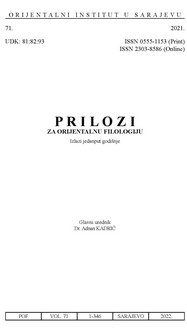
Review of: Mahmud Derviš, SABRANA DJELA, POEZIJA, I-IV, prijevod s arapskog: Džemo Redžematović, Horizonti – centar za međukulturno razumijevanje, Podgorica 2022, 510+478+400+278 str. Olga Vladimirovna Sarıgöz, Praktičeskaja grammatika sovremennogo tureckogo jazyka (v dialogah i tablično-shematičeskih objasnenijah) // Praktična gramatika suvremenoga turskog jezika (u dijalozima i tabličnim objašnjenima//, URSS, Moskva, LENAND 2022, treće prerađeno izdanje, 426 str. Amina Šiljak-Jesenković, RE/KONSTRUKCIJA PRIČE O LJ/ljUBAVI: FABULE I IZBOR STIHOVA IZ MESNEVIJA U PRIJEVODU NA BOSANSKI JEZIK, Univerzitet u Sarajevu – Orijentalni institut, Posebna izdanja LXVIII, Sarajevo, 2023, 570 str. Emrah Seljaci, POEZIJA FEVZIJA MOSTARCA NA OSMANSKOM TURSKOM JEZIKU, Fondacija “Baština duhovnosti”, Mostar, 1444/2023, 105 str. Aladin Husić, DEVŠIRMA U BOSNI (O REGRUTACIJI BOSANACA U JANJIČARE), Posebna izdanja LXIX, Univerzitet u Sarajevu – Orijentalni institut, Sarajevo, 2023, 164 str. Elma Korić, OBLIKOVANJE GRANICA BOSNE: BOSNA U AHDNAMAMA I HUDUDNAMAMA IZ 16. I 17. STOLJEĆA, Univerzitet u Sarajevu – Orijentalni institut, Posebna izdanja LXVII, Sarajevo, 2022, 174 str. Faruk Taslidža, IZMEĐU RATOVA – NA GRANICI SVJETOVA: DRUŠTVENO-PRIVREDNI ODNOSI HERCEGOVAČKOG SANDŽAKA U PRVOJ POLOVINI XVII STOLJEĆA (1606–1645), BZK Preporod, Mostar, 2022, 233 str. Hana Younis, A QADI IN THE CHRISTIAN EMPIRE: THE STAFF AND WORK OF THE SHARIA COURTS IN BOSNIA AND HERZEGOVINA 1878–1914, Univerzitet u Sarajevu – Institut za historiju, Sarajevo, 2023, 430 str. Dijana Pinjuh, Anđelko Vlašić, TRAGOM EVLIJE ČELEBIJA KROZ HERCEGOVAČKI SANDŽAK, Srednja Europa, Zagreb 2023, 290 str. ULOGA I ZNAČAJ GAZI HUSREV-BEGA U HISTORIJI BOSNE I HERCEGOVINE: Zbornik radova sa naučnog skupa “Uloga i značaj Gazi Husrev-bega u historiji Bosne i Hercegovine”, Sarajevo, 22. septembar 2021. godine, Gazi Husrev-begova biblioteka u Sarajevu, Univerzitet u Sarajevu – Orijentalni institut, Univerzitet u Sarajevu – Institut za historiju, Historijski arhiv Sarajevo, Sarajevo, 2022, 305 str. ZAMIŠLJANJE ŽENE: O IDEOLOŠKIM I KULTURNIM KONCEPTIMA ŽENSKOG RODA U POVIJESTI BOSNE I HERCEGOVINE, ur. Sabina Veladžić, Aida Ličina Ramić, Fondacija Heinrich Böll, Sarajevo, 2023. Dženita Karić, BOSNIAN HAJJ LITERATURE: MULTIPLE PATHS TO THE HOLY, Edinburgh University Press, Edinburgh, 2023, 256 str. Katalog arapskih, turskih, perzijskih i bosanskih rukopisa, Svezak treći. Obradio Hamza Lavić. Historijski arhiv Sarajevo, Sarajevo, 2022, 370 str.
More...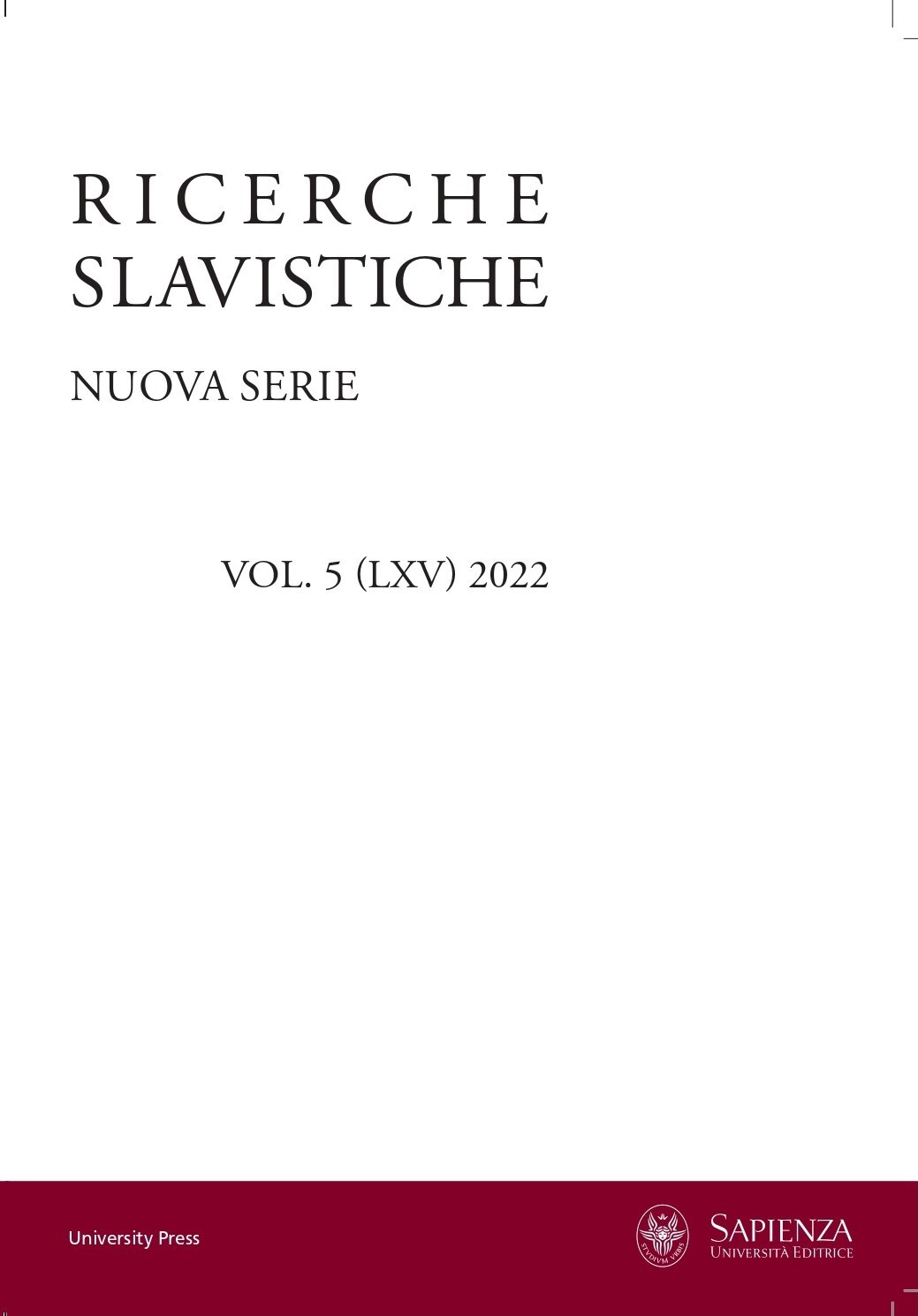
Serbocroatistic contributions have been published on the pages of “Ricerche slavistiche” since 1952, when this academic journal of Slavic Studies was founded by Giovanni Maver at the University of Rome (now Sapienza University). Articles and reviews on various Serbocroatistic topics (that is concerning linguistics, literary history, literary criticism, culture) have been appearing in this journal with such a continuity that they can be included among the most frequent ones.
More...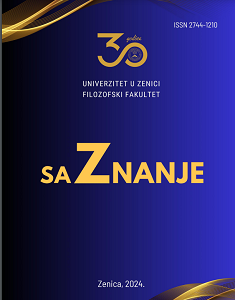
The concept of literacy, which once referred to the ability to read and write in the mother tongue, is changing in accordance with social, scientific and technological changes so that in the 21st century literacy is not only the ability to read and write, but also implies knowledge of information and communication technologies, critically thinking and the necessity of lifelong learning. Such changes also require changes in the educational system, i.e. media literacy of students from the period of elementary school, which is achieved through media education. In this paper, we will analyze the presence of content related to media education and media literacy in the following subjects: Bosnian language and literature, English language, Biology and Chemistry, and their impact on the development of critical thinking and media literacy of eighth and ninth grade elementary school students. After collecting the data for the purpose of developing the theoretical part of the work, we began to develop the methodological part, which represents the basis for empirical research of the problem. Using the methods of theoretical analysis and synthesis, descriptive and survey methods, we examined the connection between the content of the mentioned teaching subjects and media culture. The aim of the research was also to determine the inclusion of media content in the teaching of the mentioned subjects with an emphasis on the analysis of the most frequently used media and media content, the possibility of their critical evaluation by the students, as well as the ability to create their own media content.
More...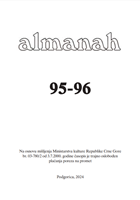
Review of: 1. Istinom protiv zaborava, Adil Zulfikarpašić, Put u Foču, Bošnjački institut – Fondacija Adila Zulfikarpašića, Sarajevo 2022.; 2. Dragocjena monografija, Bajro Agović, Džamije u Crnoj Gori, Almanah, Podgorica, 2023.; 3. Monografija o mušovićima, Ulvija Mušović: Mušovići – od begova i kapetana do zbjegova i svjetskih metropola, Almanah, 2024.; 4. O prodorima vječnog u prolazno, Nusret Idrizović Bistrička svitanja, Bošnjačka nacionalna zajednica Hrvatske, Zagreb, 2003.; 5. Pogledaj u svoje djetinjstvo i ne okreći se sine, Dino Burdžović, Bruce Lee je umro u Bijelom Polju, Alternativna Grupa Monte Art – Frankfurt Am Main, 2023.; 6. Čovjek u vremenu zla, Aleksandar Srdanović, Kraj dana, Bijelo Polje, 2024.; o vanjskoj politici Putinove Rusije, Nikola Samardžić, Drugi hladni rat. Zapad i Rusija: 1999-2019., Laguna, Beograd, 2021.; 7. Pjesnikove se oči na tamu vremena privikavaju, Safet Hadrović Vrbički, DIVAN - Antologija vlastite lirike Rožaje – Cetinje, 2023.; 8. Gusta mreža različitih značenja, Kemal Musić, Dan poslije, Nova knjiga, Podgorica, 2020.; 9. Haverićeva knjiga muslimanske zajednice u Australiji, Muslims Making Australia Home: Immigration and Community Building By Dzavid Haveric (Carlton, Vic.: Melbourne University Press, 2019); 10. Naša rijeka roman duboke emotivnosti, misaonosti i nesvakidašnjeg stila i jezika, Esad Kočan, Naša Rijeka, Almanah, Podgorica, 2023.; 11. Moć onoga što vidiš i onoga što ne vidiš, Redžep Nurović, Pjesme iz slušalice, Centar za kulturu “Vračar”, Beograd, 2024.
More...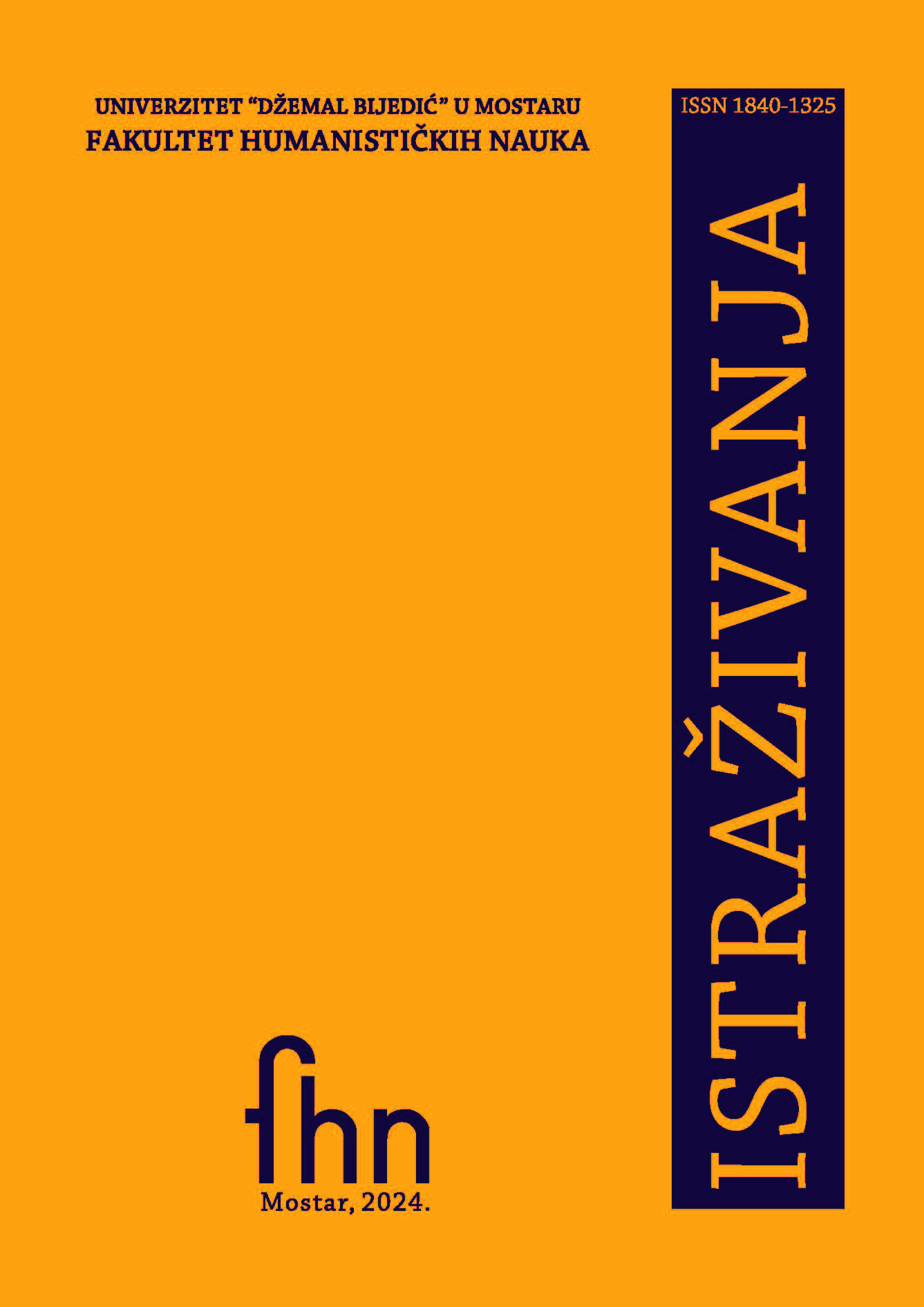
Scholars of Skender Kulenović's literary work have long noticed the special importance that the writer places on language. It is not without reason that some of them have called him a "miner" or "wizard" of language. Although the linguistic beauty of Kulenović's expression was initially most often observed in poetry - sonnets and poems above all - his narrative work is no less interesting from a linguistic aspect. This paper will discuss the linguistic characteristics of the story The Old Man and the Child, which belongs to the post-war period of Kulenović's literary work. A poignant and emotional theme had to be told in a special and condensed linguistic expression that reflects not only the ambience of the place and time of the story, but also the complex psychology of the characters, in the presentation of which speech characterization plays an unusually significant role. In this story, linguistic expression spreads in several directions, which proves that literature is primarily a linguistic art, and Kulenović is a writer who knows not only the basic tone, but also the numerous nuances of our language.
More...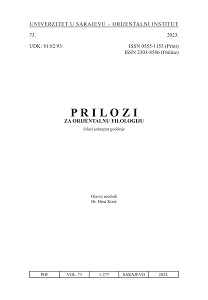
Reviews of: 1. Mehmed Kico i Amrudin Hajrić, UVOD U ORIJENTALNU FILOLOGIJU, Fakultet islamskih nauka i ElKalem, Sarajevo, 2021, 184 str. 2. Dragana M. Đorđević, UVOD U KLASIČNU ARAPSKU LEKSIKOGRAFIJU (VIII – XVIII VEK), Univerzitet u Beogradu – Filološki fakultet, Beograd, 2024, 122 str. 3. Berin Bajrić, ORIJENTALNO-ISLAMSKO NASLIJEĐE U DJELU MUḤĀḌARA AL-ʼAWĀʼIL WA MUSĀMARA AL-ʼAWĀḪIR ALI-DEDE BOŠNJAKA, Univerzitet u Sarajevu – Orijentalni institut i Centar za napredne studije, Posebna izdanja LXX, Sarajevo, 2023, 153 str. 4. ANTOLOGIJA POEZIJE ARAPSKOG ISTOKA XX VIJEKA, Izbor: Esad Duraković i Muhammed Mufaku, IC štamparija Mostar, Mostar, 2024, 306 str. 5. DÜNYA’DA TURKOLOJİ, sv. I-III, Priredili: Prof. dr. Öztürk Emiroğlu, dr. Bagdagul Mussa, Türkoloji Akademisi & Intercontinental, Ankara, 2024, 2071 str. 6. Mustafa İsen, Tuba Durmuş, BALKANLARDA TÜRK EDEBIYATI TARIHI: BAŞLANGICINDAN GÜNÜMÜZE KADAR, UNYT Press, İstanbul, 2023, 639 S. 7. Munir Drkić i Ahmed Zildžić, CARSTVO TEKSTA: TUḤFE-I ŠĀHIDĪ I NJEGOVA UPOTREBA U OSMANSKOJ BOSNI, Gazi Husrev-begova biblioteka u Sarajevu, Sarajevo, 2023, 230 str. 8. Adnan Kadrić, Alma Omanović-Veladžić, BUŽIM U OSMANSKIM DOKUMENTIMA I POPIS STANOVNIŠTVA 1851. GODINE, BZK „Preporod“ Bužim, Bužim, 2024, 513 str. 9. Aida Mujezin-Čolo, ČAJNIČE I OKOLINA, 15. I 16. STOLJEĆE, ElKalem, Sarajevo, 2023, 253 str. 10. Adis Zilić, Faruk Taslidža, Sedad Bešlija, Haris Dervišević, Ahmet Kurt, SINAN-PAŠA BOROVINIĆ: DRUŠTVENI STATUS, PORIJEKLO, POLITIČKI USPON, POČETAK URBANIZACIJE MOSTARA, Univerzitet Džemal Bijedić u Mostaru, Medžlis Islamske zajednice Mostar, Mostar, 2023, 198 str. 11. KATALOG ARAPSKIH, TURSKIH, PERZIJSKIH I BOSANSKIH RUKOPISA, Svezak IV, Obradio Ahmed Zildžić. Historijski arhiv Sarajevo, Sarajevo, 2023, 296 str. 12. MEDICINA BEZ GRANICA: ZDRAVLJE I LIJEČENJE U OSMANSKOJ BOSNI, Zbornik radova, Bošnjački institut – Fondacija Adila Zulfikarpašića, Sarajevo, 2023, 163 str.
More...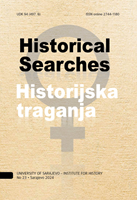
This article takes as its starting point the task of remembering and re-evaluating the work of the recently deceased poet and researcher Ajša Džemila Zahirović. In an attempt to uncover and analyze the reasons why her work and the author have been forgotten, this paper seeks to examine the context in which women create and in which their work is valued. This includes the creation of a theoretical-critical framework that is reflected in the combination of feminist literary criticism and gynocriticism, with the aim to provide an adequate response to the problem of the exclusion of women from the dominant literary history and canon. Although the main focus here is on interpreting the editorial practices of the first Bosnian anthology of women’s poetry Od stiha do pjesme: Poezija žena Bosne i Hercegovine [From verse to poem: Poetry of women of Bosnia and Herzegovina] (1985), in addition the paper will identify the method of establishing a subgenre of an anthology of women’s poetry capable of giving voice to women and intervening in the dominant field of knowledge. The work is based on retrieving forgotten women writers from history, such as Zahirović. Additionally, the idea of this paper is to articulate the history of women’s writing. The aim is also to reposition both the researcher and her anthology within the spaces of the reconstruction of the female literary tradition and the imperative of memory. The entire analysis is based on a careful examination of the status of the writer and anthologist, that is, demonstrating and affirming her importance.
More...
This paper aims to present in an integral form selected sources from the “Melika Salihbegović” collection, archived in the Museum of Literature and Performing Arts of Bosnia and Herzegovina. It seeks to illuminate one woman’s inner world, voice, writings, her perception of social, ideological, political reality and the structures of institutional power during socialist period in Bosnia and Herzegovina in the late 1970s and 1980s. Since the writer Melika Salihbegov(ić) was detained, trialed, and convicted in the Sarajevo Process of 1983, the sources presented here offer a poignant insight into the ways in which repression by state and so-called security authorities – and also social ostracism, which, as the sources suggest, aimed to erase the visibility of her person and her voice in the public sphere – along with social isolation, took a toll on the body, mind, and soul of a woman who, driven uncompromisingly by deep conviction, sought to affirm herself publicly as a free political being and cultural creator.
More...